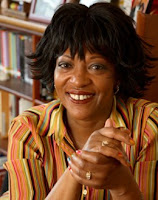a lost generation
Amazon’s book description (sorry if you wrote it, there was no
name attached to the descript.) for The Paris Wife reads as follows,
“A deeply evocative story of ambition and betrayal, The
Paris Wife captures a remarkable period of time and a love affair between two unforgettable
people: Ernest Hemingway and his wife Hadley.
Chicago, 1920: Hadley Richardson is a quiet
twenty-eight-year-old who has all but given up on love and happiness—until she
meets Ernest Hemingway and her life changes forever. Following a whirlwind
courtship and wedding, the pair set sail for Paris, where they become the golden
couple in a lively and volatile group—the fabled 'Lost Generation'—that includes
Gertrude Stein, Ezra Pound, and F. Scott and Zelda Fitzgerald.
Though deeply in love, the Hemingways are ill prepared for
the hard-drinking and fast-living life of Jazz Age Paris, which hardly values
traditional notions of family and monogamy. Surrounded by beautiful women and
competing egos, Ernest struggles to find the voice that will earn him a place in
history, pouring all the richness and intensity of his life with Hadley and
their circle of friends into the novel that will become The Sun Also Rises.
Hadley, meanwhile, strives to hold on to her sense of self as the demands of
life with Ernest grow costly and her roles as wife, friend, and muse become more
challenging…”
The NYTimes review was a little rougher.
I thought this was a good synopsis, so why reinvent the wheel? I will
speak instead to my feelings of the book which are as follows: I enjoyed it; it was
interesting enough to move along, but left me feeling
the same sadness and sullenness as I do when I read Hemingway’s novels (this is
not to say that I don’t enjoy them, it’s just that I am glad when the book is
over). Reading Hemingway is like a relationship: in the beginning there is newness and possibilities, then the inevitable let-downs and fights, make-up sex, eventual ponderings of how best to proceed: how does this relationship move forward? Does this relationship move forward?
It was an interesting read, which I paired with Hemingway's A Moveable Feast, bouncing back and forth between the two (this doubled my morose mood for some weeks!) It was interesting to hear both sides of the story, if you will, (though The Paris Wife is fiction, A Moveable Feast reads like Hemingways journal from this same time period might, published posthumously by his family.) While I enjoyed The Paris Wife, I found myself very much disliking A Moveable Feast; the book felt like a rambly mess of ideas, as most journals do, something that had Hemingway lived to see its publish, I'm sure would have been more cleaned up.
 |
| Hadley (Richardson) and Ernest Hemingway |



Comments